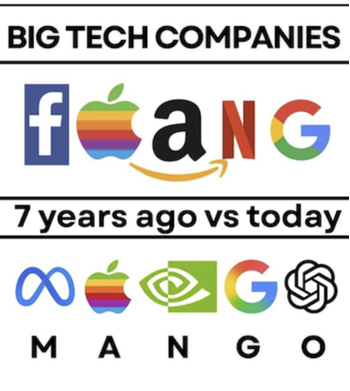Sept. 19, 2025, 6:03 a.m.
The Elite will Soon be Immune to Disease. What Happens to the Rest of Us?

The Conspiracy Report

In nature, protein evolution happens over millions of years. But the Scripps Research Institute came up with a method that evolves proteins up to 100,000-times in a matter of days…
By David Sussin
Scientists at Scripps Research Institute just made a major leap toward synthetically enhanced humans.
A large portion of medical breakthroughs involve proteins. Life-saving medicine like insulin, antibodies that target cancer, and enzymes that correct genetic defects, are all proteins.
But there's been a significant limitation to these advances.
We're stuck with the proteins naturally available. And they don't change very often -- or more accurately, they're always changing, but at a glacially slow pace.
In nature, protein evolution happens over millions of years. Proteins only change as organisms accumulate mutations. This happens across generations. This is time we don't have.
For a human living on Earth today, millions of years is the same as saying never. We can't wait around for new proteins to evolve, so any future medical advancements based on them are pretty meaningless to us.
Of course, in lab settings scientists have been able to speed up the process a bit.
They have methods that can improve or add new functions to proteins in a matter of years. Mutation rates are still low and the process is labor-intensive, but it works. Years is better than generations.
But the Scripps Research Institute came up with a method that evolves proteins up to 100,000-times in a matter of days…
From garages to trillion-dollar giants… one thing never changed.
Apple started in a garage.
Amazon started in a basement.
Google started in a dorm room.
Different stories. Different products. Different acronyms.
FAANG.
MANGO.
But one constant fueled them all: DATA*

Every trillion-dollar empire runs on it.
Without data, they collapse. With it, they dominate.
Now, a new player is redefining the data model.
Mode Mobile.
Instead of Big Tech hoarding the value, Mode shares it with users by aiming to turn 7 billion smartphones into “EarnPhones.”
That’s why:
● They’ve grown 32,481% in 3 years.
● They’ve earned $75M+ in revenue.
● They’ve attracted 55,000+ investors.
● They’ve raised over $59 million.
● They’ve reserved the stock ticker $MODE, paving the way for a potential IPO.
If FAANG was yesterday’s story… and MANGO is today’s headline…
Then Mode Mobile is tomorrow’s opportunity.
Their last investment round was over subscribed at $0.30/share and space in the current round is limited.
>>> Invest now before the window closes.
Normally when cells grow and divide, they copy their DNA exactly so each new cell gets a complete set of instructions. This copying is done by a group of proteins called the "DNA replication machinery".
It reads the original DNA strand and builds a new matching strand. Nature favors things staying the same in this way. If a mutation happens, it sneaks in slowly -- again, over generations.
The Researchers had an epiphany as they considered how to speed things up: they didn't want an exact copy of the DNA. Or even a good copy. They needed "DNA replication machinery" that did a horrible job -- they wanted as many mistakes as possible. Because new medical innovations thrived on new types of proteins.
And that's exactly what they made.
The researchers created a separate DNA copying system inside E. coli bacteria (a safe strain used in labs as a way to copy the DNA). The method copied a specific piece of DNA called a plasmid, instead of the whole bacterial genome.
The system generated millions of copies in two days. And the ironic beauty of the experiment? None of them matched. They were all "wrong", which made them mutations. It was forcing evolution to happen. In terms of medical advancement, it's like striking gold.
Suddenly a new world of medical advances opened up. With a constantly growing library of protein variants, scientists can develop new medicines and treatments previously impossible to create.
It opens the door to synthetic-genetic materials -- scientists no longer have to rely solely on natural DNA or RNA. This method churns out engineered DNA, expanding the genetic toolkit. New biological functions and life-like molecules are possible.
Soon, patients will have supercharged enzyme replacement therapies treating a range of genetic diseases. They'll have access to ground-breaking antibiotics making them resistant to infections. They can receive genetically tailored immune therapies targeting any type of cancer or chronic illness.
And should any disease get past these advanced defenses, patients will receive treatments genetically targeted to the impacted cells, getting rid of them with astounding precision.
The question isn't how much this will improve human health, but for who?
There's a revolutionary form of immunotherapy available right now that engineers a patient's own immune cells to recognize and attack cancer. It's called CAR-T Cell Therapy.
And it's shown remarkable success in certain blood cancers, including some types of leukemia and lymphoma, even when other treatments fail. But the treatment requires highly specialized facilities. And each patient needs a personalized version -- that's what makes the process so effective.
It's also what makes it prohibitively expensive. The treatment costs $400,000.
The exact cost fluctuates, but you get the picture. Cutting-edge medical advances only save the lives of those who can afford it.
The advances from Scripps Research Institute open the possibility of a "super-human". Protein therapies could make their immune system super-resilient, able to recognize and neutralize pathogens effortlessly.
They'd never get the latest pandemic virus, let alone a cold or a flu. And they wouldn't need vaccines, since their own immune system would be boosted to extraordinary levels.
It wouldn't stop there. This Super-Human would have access to ultra-fast healing via enzymes that promote lightning-fast tissue regeneration. Cuts, bruises, and even broken bones would heal in days instead of weeks, like some sort of real-world X-Man. Lifespan and health span would extend dramatically.
There would also be proteins engineered to support neuron health and synaptic plasticity. These Super-Human patients would enjoy enhanced memory, focus, and learning ability well beyond today's baselines.
These evolved proteins might also protect against neurodegenerative diseases like Alzheimer's, keeping the mind sharp well into old age.
Muscle proteins could be evolved for optimal strength and endurance without fatigue or injury, plus joints and connective tissues reinforced by specialized collagen variants, provide enhanced physical performance.
It's easy to imagine Super-Human patients able to run faster, recover quicker, and resist injury naturally.
Then they get the bill. Will it be a million dollars? More? Much of it won't be 'medically necessary'. What will it cost to be Super-Human?
The elite are about to get healthier beyond imagination. Seems like most of us will be relegated to watching the miracles happen as we snack on Doritos and hope for the best.
Source:
https://www.science.org/doi/10.1126/science.adp9583
*Mode Mobile recently received their ticker reservation with Nasdaq ($MODE), indicating an intent to IPO in the next 24 months. An intent to IPO is no guarantee that an actual IPO will occur.
The Deloitte rankings are based on submitted applications and public company database research, with winners selected based on their fiscal-year revenue growth percentage over a three-year period.
In making an investment decision, investors must rely on their own examination of the issuer and the terms of the offering, including the merits and risks involved. Mode Mobile has filed a Form C with the Securities and Exchange Commission in connection with its offering, a copy of which may be obtained here: https://www.sec.gov/Archives/edgar/data/1748441/000164117225025402/ex99.pdf